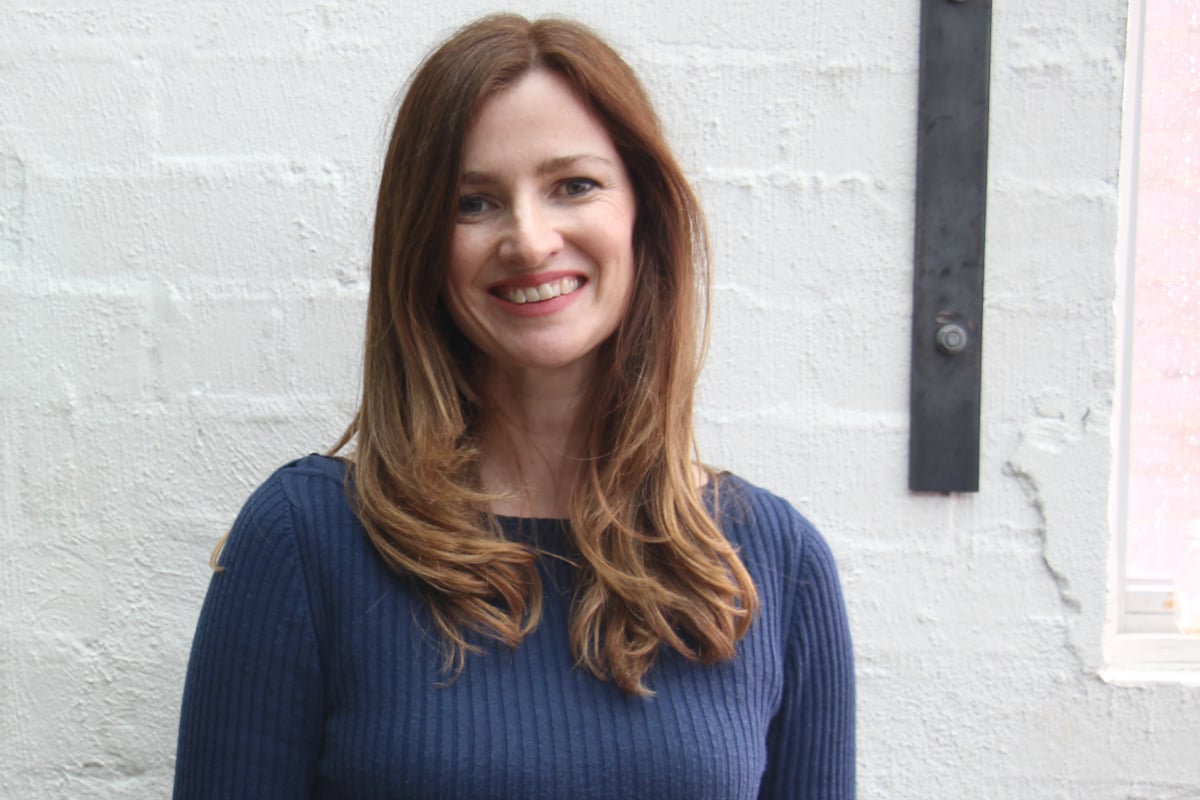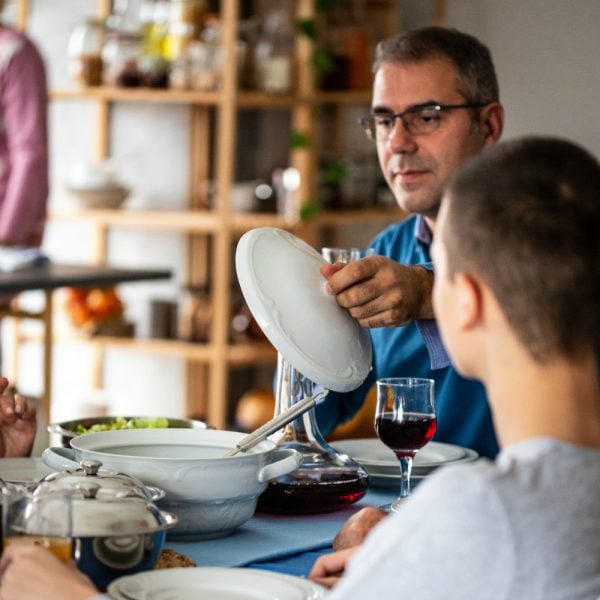'My daughter's 16 and might be around alcohol. So I'm looking at my own behaviour.'
by Kate Fennessy

Thanks to our brand partner, DrinkWise Australia
So many things about growing up only truly hit home when you become a parent yourself.
You find yourself looking back on your own memories as a teenager with a sudden necw perspective – what I must have put my parents through?
And then the next realisation hits you even harder – how am I going to handle that as a parent?!
My daughter is 16. She is bright, sensible and kind. She is similar to me, but also so different.
I’m an extrovert, and I often share my thoughts out loud before I’ve fully processed them. My daughter is thoughtful, calm and much more interested in outward things – the environment, global politics, flaws in the systems she sees all around her as she explores them, information at the touch of her fingertips.
I look back at myself at her age and I was so self-absorbed. My world consisted of schools, parties, boys, gossip, music, drama and friendships. We had more freedom, but less access to information. I was in such a rush to grow up; my daughter takes her time to learn about the world she has been born into.
I love watching her evolve into the gorgeous young woman she is becoming.
But I sometimes worry about the choices she will make. Will she feel pressure to put herself in situations she isn’t ready for? Can I be confident about the decisions she will make when I am not there to guide her?
And yet with everything in our household of two, I realise there’s a lot I can do just by setting the right example.
In fact, when it comes to alcohol, I think I’ve been subconsciously setting an example for my daughter over the last few years.
When your kids are little, you might think they’re not studying you with a critical eye, but they are in fact absorbing your attitudes and behaviours. The research is clear that kids form their attitudes and behaviours about alcohol, long before they have their first drink.

As kids become teenagers, they may challenge their parents about their drinking behaviours. But the best thing we can do as parents is to model the right behaviour at home.
Teens want to be treated like adults, which may mean discussing drinking alcohol at home, asking to take alcohol to parties or drinking with their friends.
So here are some of the things I have become more aware of as my daughter has grown up.
Alcohol-free days.
I’m really aware of having more alcohol-free days than not in any given week. I don’t make a big deal of it, and I don't use that term necessarily, but I do want her to see that I don't rely on alcohol in any sense, that it’s not part of my routine and that it’s definitely in the “sometimes” rather than the “always” category.
Not always connecting celebrations to drinking.
When I’m celebrating with friends or family, alcohol is not always the go-to ritual. We celebrate occasions with gatherings, with cakes, with weekends away, with special shopping trips – I don't want her to think that the only way to have fun or mark occasions is with alcohol.
Language around alcohol.
I’m also really aware of not making those kinds of jokes like “It’s beer o’clock somewhere, right?” or linking motherhood with drinking wine in front of my daughter. I don’t pour my first drink at 4pm and declare “It’s been a hell of day!”
Why? Because I don’t want her to make the subconscious connection between things like having a tough day and the need for a drink. I know that turning to alcohol for a form of stress release only adds to the problem or makes it worse. And I don't want to normalise this behaviour.
I usually drink a glass of wine with a meal, or when I’m out or socialising, rather than just drinking for the sole purpose of drinking at home. I try and show her too, that turning to exercise or self-care is a much better form of stress release.
Open dialogue.
The topic of alcohol has come up a few times when it comes to “gaths” (short for gatherings, the term for parties in my daughter’s world). She has seen alcohol experimentation coming into her orbit, and so I have started talking with her about the different ways people use alcohol, and the many sides of alcohol she needs to be aware of.
But I’ve held back from offering her alcohol at home, and I have explained to her that her young brain is still in the crucial stages of development, and that alcohol and the teenage brain is really not a great mix.
According to the advice of not-for-profit organisation DrinkWise, the best thing to do is delay your teen’s drinking alcohol for as long as possible, or at least until 18 because the brain is still forming.
Most teens do not drink alcohol - 82 per cent of 12 to 17 year olds are actually abstaining from alcohol, an Australian Institute of Health and Welfare survey found in 2016.
So, I shouldn’t be surprised really that my level-headed daughter can’t see the appeal of wasting money or time on something like alcohol.
“That’s not the point of our gaths”, she explains to me. “It’s just about hanging out and having fun.”
Let’s hope I am setting her up for a future where she will make healthy choices about alcohol, if she chooses to drink.
If you need help talking to your teenager about alcohol, have a look at DrinkWise's DELAY 5 Point Plan to help guide you through.
What has worked for you when talking to your teen about drinking?

DrinkWise is a NFP which aims to promte a healthier and safer drinking culture in Australia. Of particular importance is ensuring teenagers abstain from drikning alcohol and that parents have an open and honest conversation around alcohol.